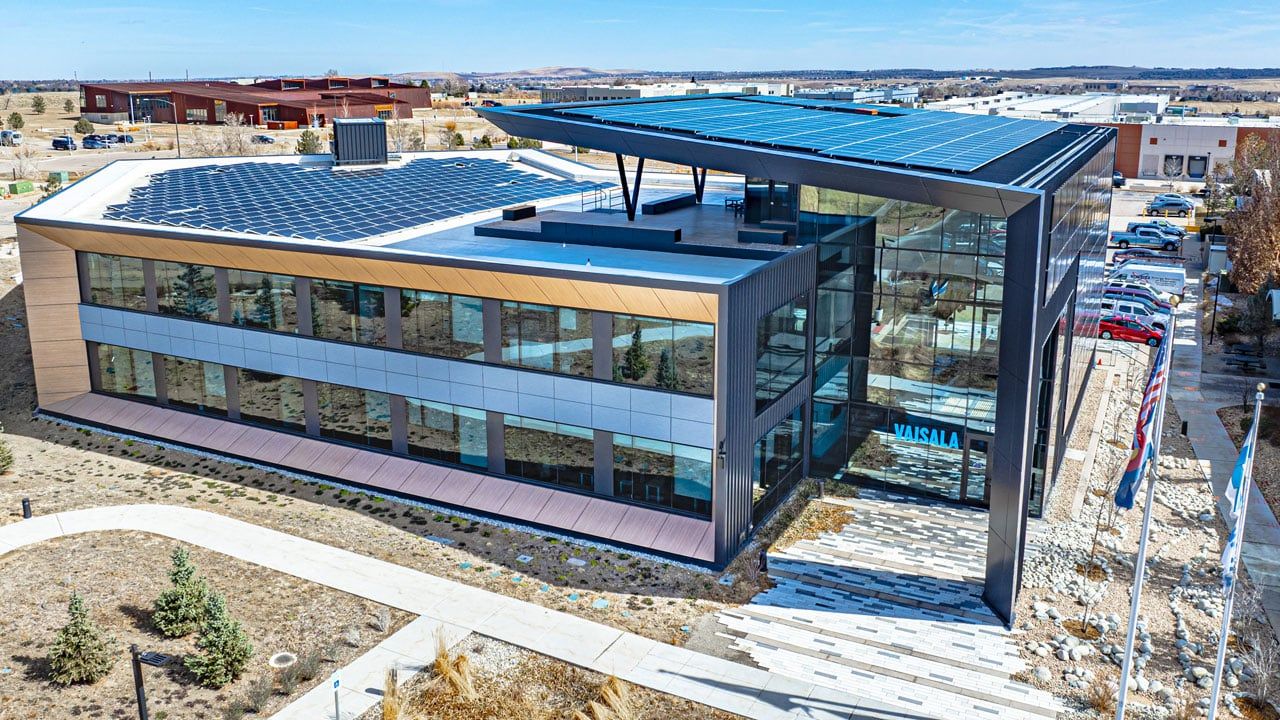United Power again sues Tri-State in state court after CPUC dismisses complaints
BRIGHTON and WESTMINSTER — United Power Inc. has filed a second lawsuit against power wholesaler Tri-State Generation and Transmission Association Inc. over the latter’s inclusion of non-electric utility members, marking the latest salvo in a bitter divorce proceedings.
In the complaint filed Monday in Adams County District Court, the Brighton-based United claims Tri-State’s admission of a natural-gas broker, a ranch and a greenhouse to the wholesaler’s group of electric cooperatives across Wyoming, Colorado, New Mexico and Nebraska were meant to stifle efforts from want-away members that have demanded Tri-State give them quotes to buy out their contracts.
United is by far Tri-State’s largest customer, making up almost a fifth of the wholesaler’s revenue in 2019.
SPONSORED CONTENT
Commercial Solar is a big investment, but not an overwhelming one
Solar offers a significant economic benefit for commercial property owners while also positively impacting the environment and offering a path to compliance for new municipal requirements like Energize Denver. A local, experienced solar installer will help you navigate the complexities of commercial solar to achieve financial success for your project.
Specifically, United claims that Tri-State is barred from introducing non-utility members under state law and its own internal rules because they would be treated differently from the electric utility members. It is asking the court to nullify their inclusion among Tri-State’s membership.
Monday’s suit is different from the complaint United filed against Tri-State in May, which alleges years of deception to keep United and Durango-based La Plata Electric Association Inc. from leaving the wholesaler and finding a provider that offers more renewable energy. That suit is still ongoing.
The most recent complaint was made in response to the Colorado Public Utilities Commission decision to dismiss United’s arguments in October, when it said a state court was the proper venue for the litigation.
The introduction of the three non-power providers allowed the Federal Energy Regulatory Commission to declare itself Tri-State’s prime regulator, which would overrule any state decisions to allow United and LPEA to leave and prolong those efforts in the federal bureaucracy.
Tri-State has broadly denied such claims.
The federal commission declared jurisdiction over Tri-State in March, but allowed the CPUC to declare MEICO’s inclusion unlawful if it wished.
In a statement, Tri-State said it added the new members in accordance with state law, and the majority of large power wholesalers in the state are regulated at the federal level rather than by the CPUC.
“Tri-State’s members have demonstrated strong support for FERC rate regulation, which eliminates the opportunity for differing rate regulation across the four states where Tri-State serves wholesale power,” it said. “Under FERC, for the first time, Tri-State is fully rate regulated, and each member, no matter in which state they are located, has a voice in FERC proceedings.”
BRIGHTON and WESTMINSTER — United Power Inc. has filed a second lawsuit against power wholesaler Tri-State Generation and Transmission Association Inc. over the latter’s inclusion of non-electric utility members, marking the latest salvo in a bitter divorce proceedings.
In the complaint filed Monday in Adams County District Court, the Brighton-based United claims Tri-State’s admission of a natural-gas broker, a ranch and a greenhouse to the wholesaler’s group of electric cooperatives across Wyoming, Colorado, New Mexico and Nebraska were meant to stifle efforts from want-away members that have demanded Tri-State give them quotes to buy out their contracts.
THIS ARTICLE IS FOR SUBSCRIBERS ONLY
Continue reading for less than $3 per week!
Get a month of award-winning local business news, trends and insights
Access award-winning content today!

